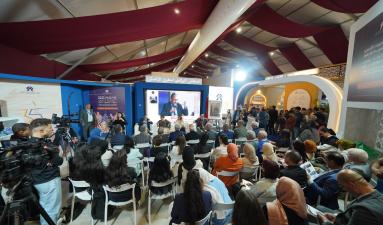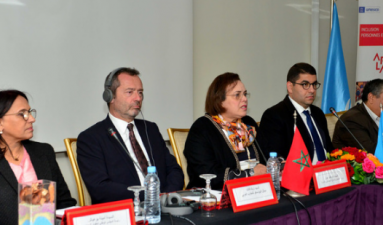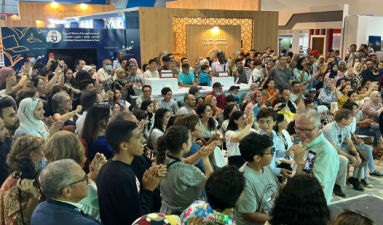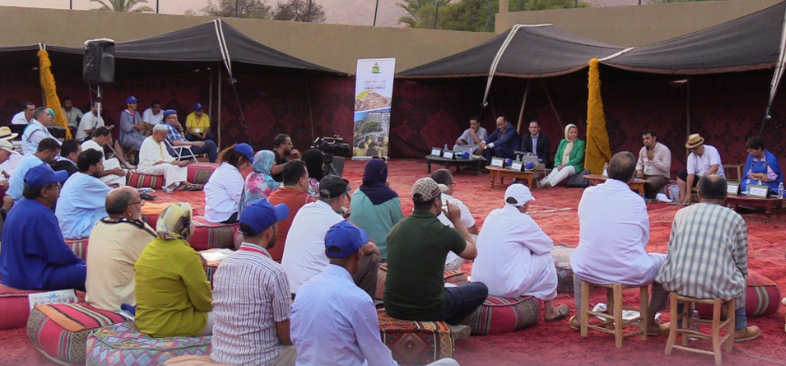
On Friday, August 16, 2024, the National Human Rights Council (CNDH) participated in a national symposium entitled "Implementation of the Official Status of the Amazigh Language: Bridging Reality and Expectation." This event was part of the "Tifawin Village Arts Festival", hosted in Tafraout, Morocco, from August 15 to 18, 2024.
At this symposium, Mr. Mohamed EL Mouaine, CNDH representative, reaffirmed the Council’s steadfast commitment to promoting linguistic and cultural rights. He emphasized the importance of discussing the implementation of the Amazigh language’s official status and its integration into education and public life. The CNDH also highlighted Ms. Amina Bouayach’s article on the process of the institutionalization of the Amazigh language in Morocco.
In her article, Ms. Bouayach underscored that appreciation for Amazigh culture and language is a crucial element of the broader effort to promote human rights in Morocco.
She noted that this process is part of a comprehensive vision aiming at strengthening Moroccan identity through its diverse components. Ms. Bouayach stressed that the Amazigh language is deeply rooted throughout Morocco, with its culture consistently celebrated at the both national and regional levels.
Ms. Bouayach detailed five key stages that distinguish the institutionalization process of the Amazigh language:
1- Historic Royal Speech: King Mohammed VI’s speech in Ajdir, Morocco, on October 17, 2001, marked a pivotal moment, institutionalizing the Amazigh language as a core component of Moroccan identity. This speech was followed by significant initiatives, including the establishment of the Royal Institute of Amazigh Culture dedicated to the preservation and development of this language and culture.
2- Academic Research and Education (since 2003): The development of academic research on the Amazigh language facilitated its transition from recognition to practical use in education, writing and public discourse, particularly through Tifinagh script.
3- Constitutional Recognition: In 2011 constitutional amendment recognized the Amazigh as an official language alongside the Arabic language, strengthening Morocco's commitment to cultural and linguistic diversity.
4- Legislative Implementation: The enactment of Organic Law No. 26-16 in 2019 formulized the implementation of Amazigh’s official status, integrating it into education and public life.
5- Amazigh New Year Recognition: His Majesty the King's declaration of the Amazigh New Year as a national and official holiday marked a significant step in consolidating Amazigh culture and recognizing it as an integral part of the national identity.
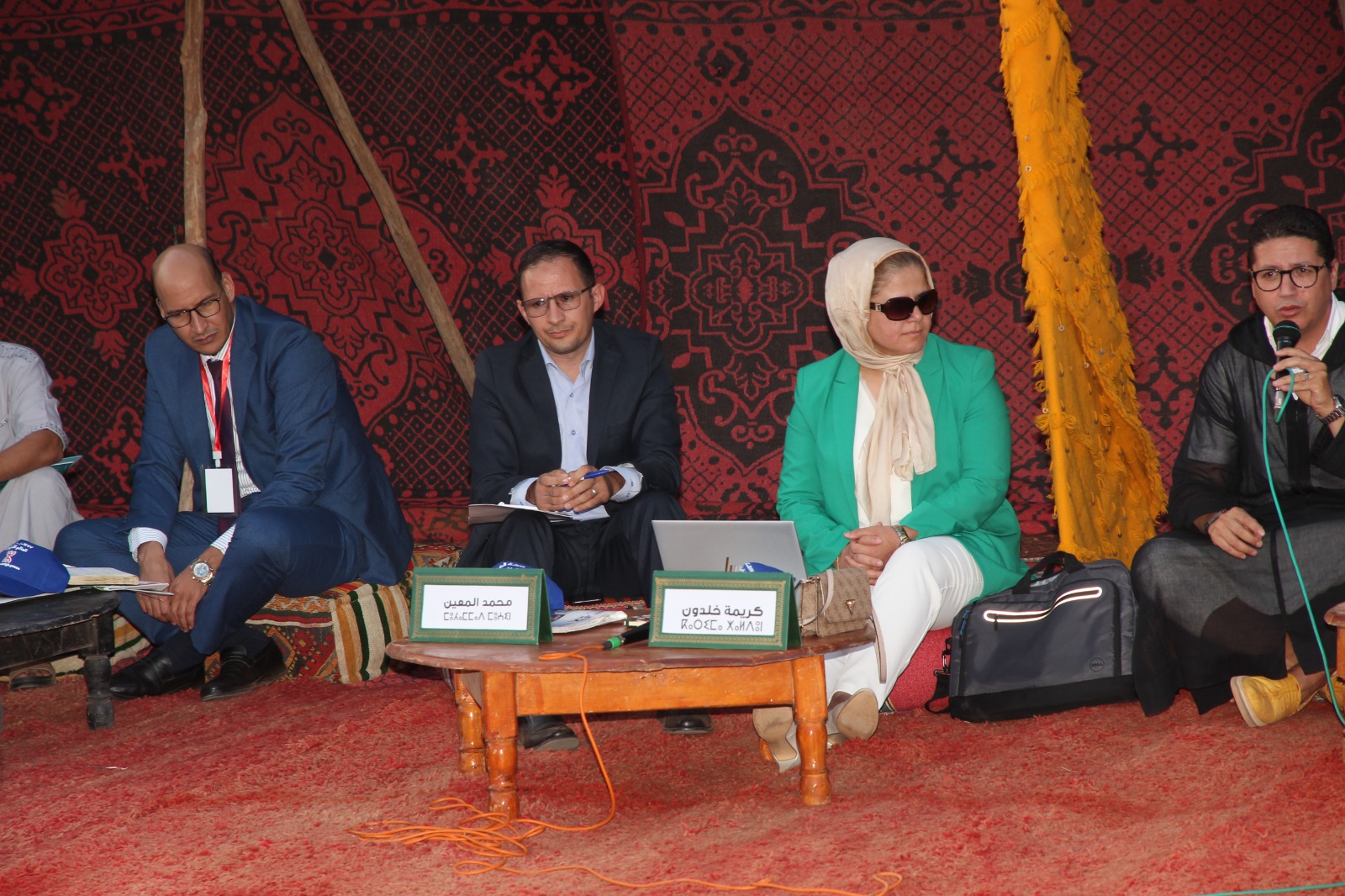
Ms. Bouayach also highlighted the challenges in implementing these policies, particularly the varying pace across different sectors and the need for adequate human and financial resources for teaching and integrating Amazigh language into public life. The CNDH Chairperson added that prioritizing the use of Amazigh language in daily life will enhance its effective implementation and ensure that Moroccans fully enjoy their linguistic and cultural rights.
At this symposium, the CNDH also reviewed the efforts and challenges related to implementing the official status of the Amazigh language as detailed in its 2023 annual report. To build on these achievements, the CNDH emphasized several key recommendations, including:
- Implementing the recommendations of the report on the new development model that underlined the importance of culture in comprehensive development;
- Establishing the National Council for Moroccan Languages and Culture;
- Enhancing efforts to establish the Amazigh language across various sectors;
- Prioritizing its integration into fundamental education and public life, including administrations and public facilities;
- Increasing the presence of the Amazigh language in public and private media; etc.

